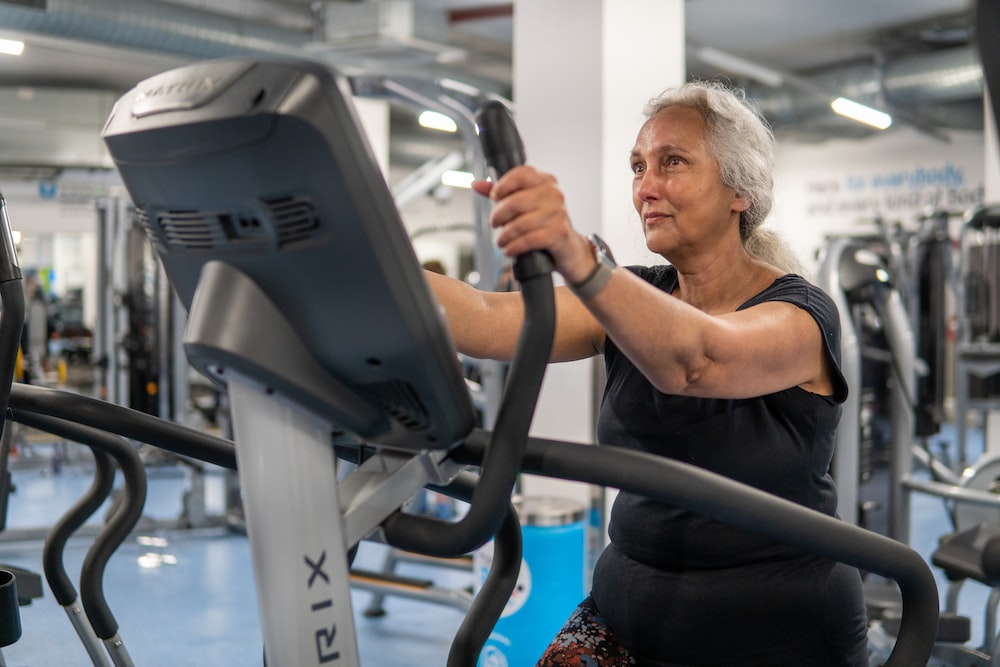Physical activity is a cornerstone of a healthy lifestyle, no matter one’s age. However, as we grow older, staying fit takes on an even more significant role, contributing to increased vitality, better health, and prolonged independence. The message is clear: no matter your age, it’s never too late to start prioritizing fitness. Here are some practical tips for staying fit as an older adult.
Move In a Way You Love
Always remember that any movement is good movement. Regular physical activity can help reduce the risk of developing chronic diseases like heart disease, diabetes, and osteoporosis. It also promotes better sleep, boosts mood, and aids in managing stress. Start slowly, especially if you’ve been inactive for a while, and gradually increase the intensity of your workouts. Keep in mind that it’s not about competing with anyone else—it’s about building a healthier, happier version of you.
Walk This Way
Walking is an excellent choice for older adults. It’s low impact, can be done anywhere, and doesn’t require special equipment apart from a good pair of shoes. Even a short 15-minute walk can make a difference but aim to work up to at least 30 minutes of brisk walking most days of the week. Outdoor walking can bring the added benefits of spending time in nature. Look for flat, well-maintained trails on sidewalks to avoid tripping hazards. Be cautious when crossing streets, older pedestrians are at higher risk of car and bicycle collisions.
Strength Is Key
Strength training is equally vital as we age. As we get older, we naturally start to lose muscle mass—a process called sarcopenia. By engaging in regular strength-training exercises, you can help counteract this process, maintain your strength, and keep your bones strong. You don’t need a gym membership or fancy equipment for strength training. Simple bodyweight exercises like squats, push-ups, or chair dips can go a long way.
Let’s Flex
Flexibility exercises should also be part of your fitness routine. They help maintain your body’s range of motion, ensuring you can perform daily tasks with ease. Regular stretching can also help prevent injuries. Yoga and Pilates are great options that often incorporate strength, balance, and flexibility training all in one.
Balancing Act
Equally important is balance training. Falls are a common problem for older adults, often leading to serious injuries. Balance exercises can help reduce the risk of falls by improving your stability. Try heel-to-toe walks, standing on one foot, or leg lifts. Tai chi, a Chinese martial art that focuses on slow, controlled movements, is also excellent for improving balance.
Don’t Forget Water
Another crucial aspect of fitness in older adults is hydration. Always ensure that you’re drinking enough water, especially before, during, and after exercise. Dehydration can impair your body’s ability to regulate its temperature and increase the risk of other health complications.
Eat Right
Nutrition is the other half of the fitness equation. Eating a balanced diet rich in fruits, vegetables, lean proteins, and whole grains can provide your body with the energy it needs to stay active. If you have specific dietary needs or restrictions, consider consulting with a dietitian or healthcare provider.
Listen To Your Body
Remember to listen to your body. It’s crucial to know your limits and avoid overexertion. Pain, dizziness, and extreme breathlessness are not normal, and you should seek medical advice if you experience them during or after exercise.
Do What You Love
Lastly, find activities that you enjoy. Whether it’s dancing, gardening, swimming, or cycling, the key is to find something that you love and will stick with. Fitness isn’t just about burning calories; it’s also about having fun and improving your quality of life.
Take Control of Your Fitness Journey
The journey towards better fitness in later years may seem daunting, but the benefits are indisputable. By incorporating physical activity into your daily routine, you’ll be taking a significant step towards a healthier, more vibrant future. Remember, age is just a number. It’s never too late to make positive changes in your life.

